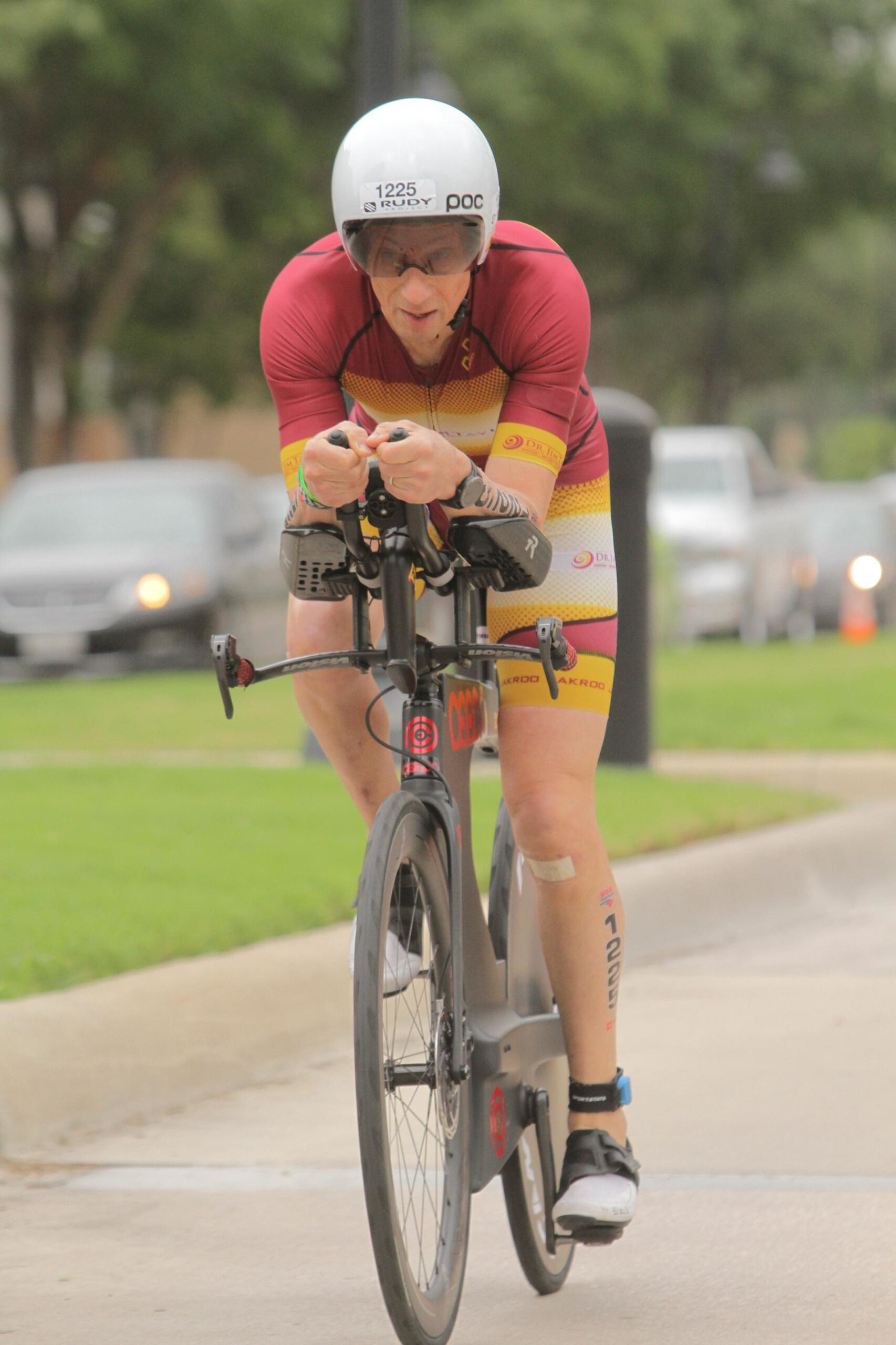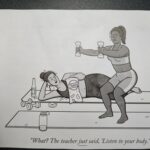The first article in my “I Practice What I Preach” Series will explore the importance of listening to our bodies to maintain our physical and mental health, maximize our training efforts, and race as fast as we can.
 One of the most revered axioms in endurance sports is: “Listen to your body.” The idea being that our bodies can tell us a lot about our current physical state. Then, in theory, we’re supposed to act on that information by adjusting the intensity and volume of our training, altering our competitive schedule, or taking time off. What could possibly be wrong with listening to your body?
One of the most revered axioms in endurance sports is: “Listen to your body.” The idea being that our bodies can tell us a lot about our current physical state. Then, in theory, we’re supposed to act on that information by adjusting the intensity and volume of our training, altering our competitive schedule, or taking time off. What could possibly be wrong with listening to your body?
Yet, this time-tested adage is much more nuanced than you might think and, in fact, listening to our

bodies may not always be the best prescription to maximize your conditioning goals, race-day preparations, or race efforts (more on this in my next article in the series). To help you figure out when you should to your body, let’s explore what your body might say to you and what those messages might mean to you.
Your Body’s Language
Your body has a very specific language it uses to communicate to your brain about its current physical status:
- Fatigue
- Energy level
- Muscle soreness
 Pain intensity and tolerance
Pain intensity and tolerance- Illness
- Injury
- Sleep quality and quantity
- Hunger
- Thirst
- Heart rate (and HRV)
- Motivation
- Confidence
- Focus
- Alertness
- Stress
- Emotions
- Amount of weight lifted, reps completed, and pace held in workouts
- Data from blood, glucose, and/or sweat monitors
Each of these messages can convey a wide of range of meanings that you could potentially leverage to guide your training plan and race schedule. Unfortunately, our minds aren’t fluent in our bodies’  language, so it requires us to “translate” the bodies’ messages so we can understand what they mean. A problem is that how we interpret the messages our bodies send us can depend on a variety of perceptions that inhibit the importance of those messages and the degree to which we actually listen and respond to them.
language, so it requires us to “translate” the bodies’ messages so we can understand what they mean. A problem is that how we interpret the messages our bodies send us can depend on a variety of perceptions that inhibit the importance of those messages and the degree to which we actually listen and respond to them.
Some of the most common perceptions that can scramble the messages your body sends to you and can prevent you from listening include:
- I’m tough enough to get through this.
- I’m not that tired.
- It doesn’t hurt that much.
- I can train through my injury.
- I just need a good night’s sleep.

- I’ll feel better tomorrow.
- I can’t take a break now.
- I’ll lose my fitness.
- I’ll never achieve my goals if I back off now.
- People will think I’m lazy if I take a day off.
- I’ll gain weight if I back off my training.
- I need to push my limits to beat my competitors.
When your body talks to you, it’s important to be aware whether the above perceptions (or others you might hold) are preventing you from hearing, evaluating, and reacting to them in a thoughtful, holistic, and healthy way.
Listen When Your Body Whispers
The goal of your body sending you messages is to get you to listen and respond in a way that is in your best long-term interests. Ignoring its messages may make you feel better in the short term by, for example, increasing your fitness from a particular workout, building your confidence, and making you feel tougher. But you will almost always pay a price for those immediate gains in the future.
 When your body has something to tell you, it begins by whispering its message to you. These whispers are easy to ignore because, well, they’re whispers, so we assume they aren’t that important. Yet, that is precisely when you should listen. When you don’t respond to those quietly conveyed messages, your body needs to get your attention and does so by increasing the volume on its messages until you actually listen. In some cases, your body may need to absolutely yell at the top of its lungs for you to listen. This very loud voice typically comes in the form of extreme pain, exhaustion, bad illness, feelings of lethargy and depression, a debilitating loss of motivation, confidence, and focus, a plethora of strong negative emotions, a substantial negative change in your training metrics, and a significant drop in your training or race performances. Unfortunately, by then, it’s often too late, the physical and psychological damage is inflicted, and there is no easy or quick way to repair the damage.
When your body has something to tell you, it begins by whispering its message to you. These whispers are easy to ignore because, well, they’re whispers, so we assume they aren’t that important. Yet, that is precisely when you should listen. When you don’t respond to those quietly conveyed messages, your body needs to get your attention and does so by increasing the volume on its messages until you actually listen. In some cases, your body may need to absolutely yell at the top of its lungs for you to listen. This very loud voice typically comes in the form of extreme pain, exhaustion, bad illness, feelings of lethargy and depression, a debilitating loss of motivation, confidence, and focus, a plethora of strong negative emotions, a substantial negative change in your training metrics, and a significant drop in your training or race performances. Unfortunately, by then, it’s often too late, the physical and psychological damage is inflicted, and there is no easy or quick way to repair the damage.
My record of listening to my body has been decidedly mixed, though improving over the last two years. On the plus side, about three months into my recovery from my hit-and-run bike collision back in September, 2021, I was jonesing to run again, so I ran a mile in my backyard on our artificial lawn that is about 10’ x 25’ (yes, a lot of laps!). My leg hurt a lot! But, being a good rationalizer, I told myself that it didn’t hurt THAT bad. Plus, my leg felt okay the next day. By coincidence, I was scheduled to get an MRI two days later with my orthopedist, Dr. Kevin Stone (one of the world’s leading sports medicine physicians). Comparing this MRI with my original one from several months previous, there was some wonderful healing, but also still considerable damage to my bones and tissue. So, I made the decision not to run until I was pain free (which took a frustratingly long six more weeks). The good news was that time was well spent healing and when I returned to running, I was almost completely healed and truly ready.
THAT bad. Plus, my leg felt okay the next day. By coincidence, I was scheduled to get an MRI two days later with my orthopedist, Dr. Kevin Stone (one of the world’s leading sports medicine physicians). Comparing this MRI with my original one from several months previous, there was some wonderful healing, but also still considerable damage to my bones and tissue. So, I made the decision not to run until I was pain free (which took a frustratingly long six more weeks). The good news was that time was well spent healing and when I returned to running, I was almost completely healed and truly ready.
On the minus side, a short time later, I was guilty of ignoring the messages my body told me. After just a few weeks of having returned to running, just as I was returning to full training after the car incident, I injured my right Achilles tendon (perhaps it was compensatory). I was out on a run and my Achilles  started to hurt, but I wanted to complete the run and thought that perhaps the pain would go away. Needless to say, I should have listened to my body and stopped running as soon as the pain became noticeable. Instead, I finished the run in severe pain and couldn’t run for another six weeks, thus setting my training back just when I was getting back full health from my injuries.
started to hurt, but I wanted to complete the run and thought that perhaps the pain would go away. Needless to say, I should have listened to my body and stopped running as soon as the pain became noticeable. Instead, I finished the run in severe pain and couldn’t run for another six weeks, thus setting my training back just when I was getting back full health from my injuries.
The essential lesson here is to listen and respond to your body’s messages when it is just whispering to you. That way, you don’t have to deal with those messages when your body is screaming at you because if it gets to that point, it’s probably too late and the damage is done.
To show you that I do learn life’s lessons (though usually begrudging and slowly), last week I was just walking around my house and, all of a sudden, I felt some tightness in my left Achilles followed by a popping feeling and much pain (oddly, I had gone for a 50-minute run the day before without incident, so this injury was a real mystery). My Achilles really hurt and an internet search indicated that a popping sensation is usually associated with something serious, so I was thinking that my triathlon season was over just as it was beginning.
But I listened to my body, and, within a few days, the pain had disappeared, and I felt fully functional. I ran five days later without pain, and it appears to be all healed. And, importantly, I’m back on track with my training leading up to USAT Multisport Nationals in TX in late April.
Note to self: listen to my body next time too!







